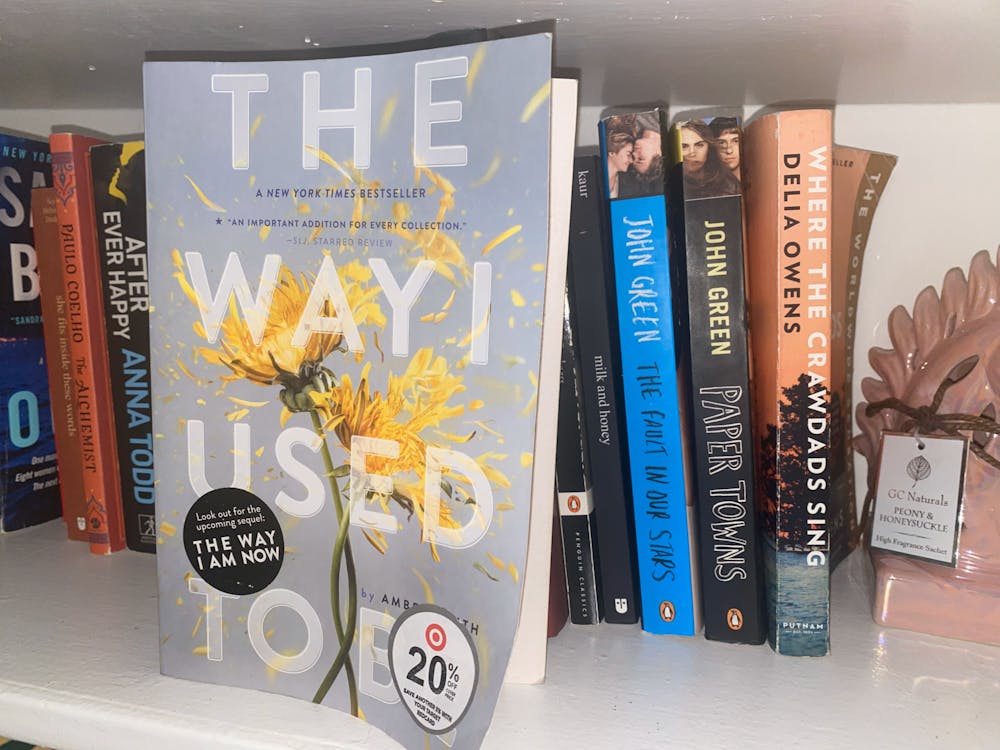Editor’s Note: This story includes mention of sexual violence. Resources are available here.
Eden was only 14 years old, entering her freshman year of high school, when a guy who was like a second brother to her made her unable to sleep in her own bed. She woke up thinking that Kevin entering her room and leaving her with her blood on her sheets was a nightmare. But the bruises on her body and her days of the week underwear on the floor brought her back to reality.
About four years later, after pretending to be someone she wasn’t in high school, nights of sleeping in her sleeping bag on her bedroom floor, hiding the truth from her brother and friends, not being able to be emotionally vulnerable for anyone, she sat in front of the detective and told her everything that happened that night when Kevin entered her bedroom.
But she didn’t just tell the authorities on her own. It wasn’t until detectives were questioning her family about Kevin because of a college girl who reported that she was raped by him too.
She couldn’t let him get away with it again.
Eden is a just a fictional character in a fictional book called “The Way I Used To Be.” What happened to her and how it affected her was based on fictional characters made up by the author Amber Smith. But as Smith said in her statement at the end of the book, teen girls and women have shared Eden’s experience and have their own stories that haven’t been told yet.
The book brings to light the aftermath of being sexually assaulted and how it can affect someone’s entire life. It shows the readers the fear that is brought upon a woman’s life, and because of what was threatened to them, are unable to speak up for fear of losing their livelihood.
[Related: COLUMN: Breaking Free: The pain that never breaks]
As more and more women find strength in others and in themselves to speak up and come forward about their sexual assault experiences in order to seek justice, this book tackles the stigma women face when they speak the truth.
According to the Rape, Abuse & Incest National Network, 55% of sexual assaults occur at or near the survivors' home. Sexual assaults occur to 48% of survivors when they are asleep or performing another activity in their home. And one out of six American women are a survivor of attempted or completed rape in a woman’s lifetime.
Smith writes the book in four sections, each covering a year of high school. Each section conveys how each year affected Eden, how she did everything to try to forget about the “nightmare”: changing her style, changing her status in high school, complying with the rumors at school about her being a “whore.”
According to RAINN, eight out of 10 rapes are committed by someone the survivor knows. Of those who are raped, 39% are committed by an acquaintance and 33% are committed by a current or former partner. From the years 2005-2010, one of the top reasons those who did not report to the police about sexual violence crimes committed was because they feared retaliation.
According to a report by the National Sexual Violence Resource Center, 63% of sexual assaults are not reported to police.
Eden is scared to tell anyone because she feared no one would believe that her brother’s best friend, a person that her family considered to be their second son, would assault her. On top of that, from the very beginning, after the assault was committed Kevin tells her how he’ll kill her if she ever tells and how no one will believe her.
Kevin defends himself by telling his younger sister how Eden is a “whore” and how the sex was consensual between them. The “whore” rumor gets spread around the school by the little sister which leads to Eden wanting to change who she is and conform to the rumor to get over what happened to her.
Eden found strength to come forward about four years later after the college girl reported what happened to her.
After she came forward, the memories and trauma didn't just go away, but it gave Eden hope that maybe she’ll explain to her best friend what happened to her, maybe find it in her heart to forgive Kevin, maybe have a real relationship one day and maybe Kevin will get what he deserves.
“All these maybes swimming around my head make me think that “maybe” could just be another word for hope,” Eden said in the closing chapter.
[Related: COLUMN: Breaking Free: peeling off the mold that has been painted on us]
Eden could never escape the reality of what happened to her, but she could hope that only good could come next after breaking free from any fear she had when she reported what happened to her.
Whether she told the next morning, a year later, or when she did, what happened to her is still valid, is still real, still deserves justice, just like the teen girls and women who have shared experiences with the fictional character, Eden.
Natalie Fitzgibbons (she/her) is a junior studying journalism with a minor in American Studies. She hopes to inspire people with her words and make a positive impact in people’s lives and the world.






